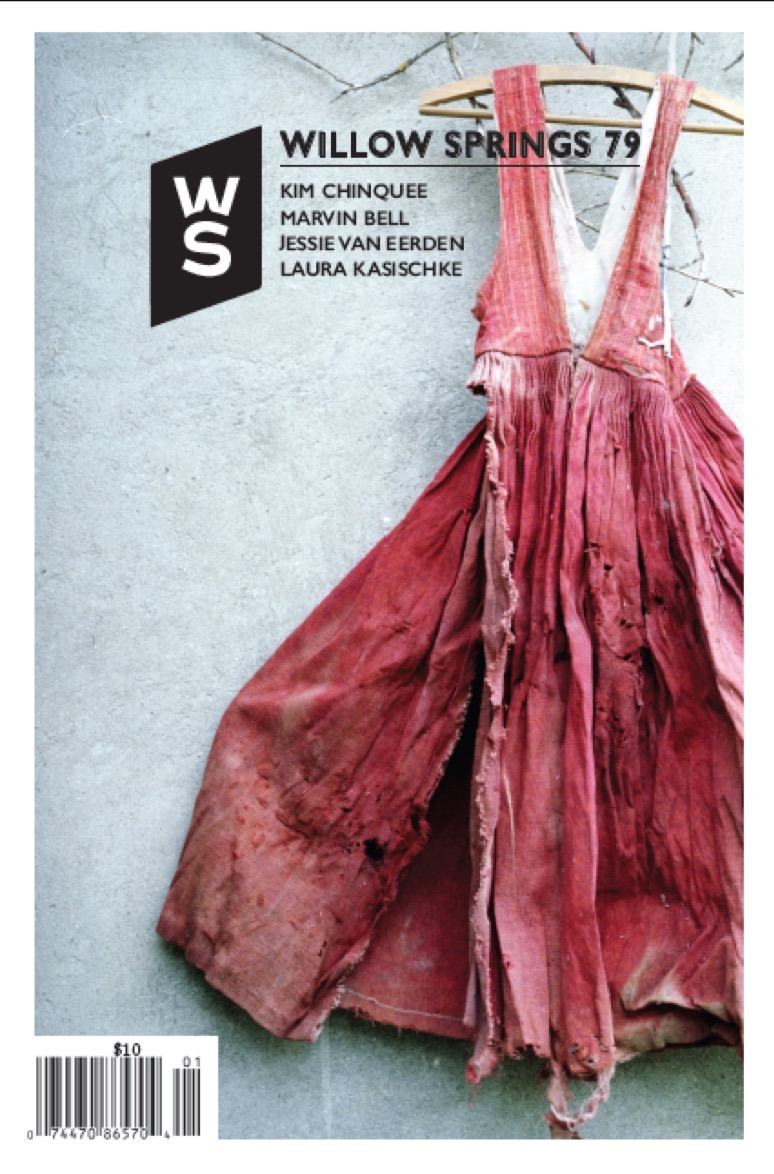“Bearing Witness” by Sonia Greenfield
It rubs off on us like brushing up
against a dirty car or the way
a dusty window screen leaves
a crosshatch of black on our palms.
I remember my mother’s boyfriend
not him, but her head against maybe
mirror, maybe sliding glass door? I see
a shatter held together, but I don’t
know where light came from to etch
splinters in what broke. I remember
hiding in my attic bedroom, kitchen
knife in hand, and the overwhelming
wood rot of that house when I
witnessed what made my mother
human in the way we say after all,
she’s only human. She made extravagant
mistakes in a town I can’t come back to.
Once, she was a barmaid in the shack
of the Shady Lake Tavern back when
they called them that, a place where men
nodded off at two in the afternoon.
I was just a girl who wore nightgowns
and was unable to sort out why I found
her in the kitchen with a wound
on her scalp like a bear clawing, some
ugly mugging, all for beery dollar bills
tucked into her apron. But maybe I’m
making this up-not the image of
her ruined scalp or her hair crusted
with the blood of an afternoon gone
to waste, but the reason for this image
branded on a childhood mile gone
and as faint as the delicate luminescence
of white Christmas lights on December
snow fallen on the Lutheran church
on Washington Street. I remember a girl
from high school who hid in my eaves.
We used to shoplift make-up in Rite Aid
though I thought it was wrong even if
it was the eyeliner I used for my careful
magic. She was beautiful like glossy crows
picking through trash, and we disguised
her from a mother who came looking for
that slut. I spent the night at her house once
when she wet her bed. She hated her
half-sister and stepfather, hated her mother
a woman as hard and painted as graffitied
rocks along the rock-cut road leaving town
to the north. Tell me, what good was I
when I didn’t know what I was seeing?
Like this girl’s shame lost on me
who was lost in my own witnessing.
I want to say sorry for accusing her
of stealing a favorite shirt actually stolen
by my sister. Some of us make it through
untouched. Why was the night sky pink
when it snowed? Once, my mother’s
boyfriend spray-painted my name
on those rocks next to the highway,
but I don’t know why he did it or why
I cling to this memory although the paint
didn’t cling very long. Anyway, it was
a town of scant employment and women
who never wanted to be nurses and annual
carnivals and a downtown of defunct
Woolworth’s and antiquated streetlights
that may recall the lacquer of hairspray
wool coats and a bandstand happy
to host boys back from the Second
World War. A town now in the midst
of revival with fussy pubs and first world
coffee. But I can’t go home because
the houses still lean on their posts like
wounded veterans, and chestnuts fall
from the trees like a hard knock rain.
And I can’t carve FTW on my arm
with a hatpin or draw lightning bolts
from the corners of my eyes anymore.
I’m too tired to ward off spirits. I’m only
able to bear witness. My mother lived
with addicts her whole life in a town where
twelve-step programs filled church annexes
when winter shortened its days. They are
still in those annexes switching on percolators
and forming circles of smokers who double up
a cold fog exhaled from their mouths like
gutters shedding dirt-flecked icicles that fall
to pierce the skin of snow beneath. I blame
the dirty snow but not my mother,
who escaped finally to Florida’s sticky
heat and tract homes, to its cheap
T-shirt shops and its tepid ocean.
A mother who wears her story in
a smattering of hazy tattoos and who bears
her mistakes in the resigned set of a mouth,
its hard line striking through any of this.


